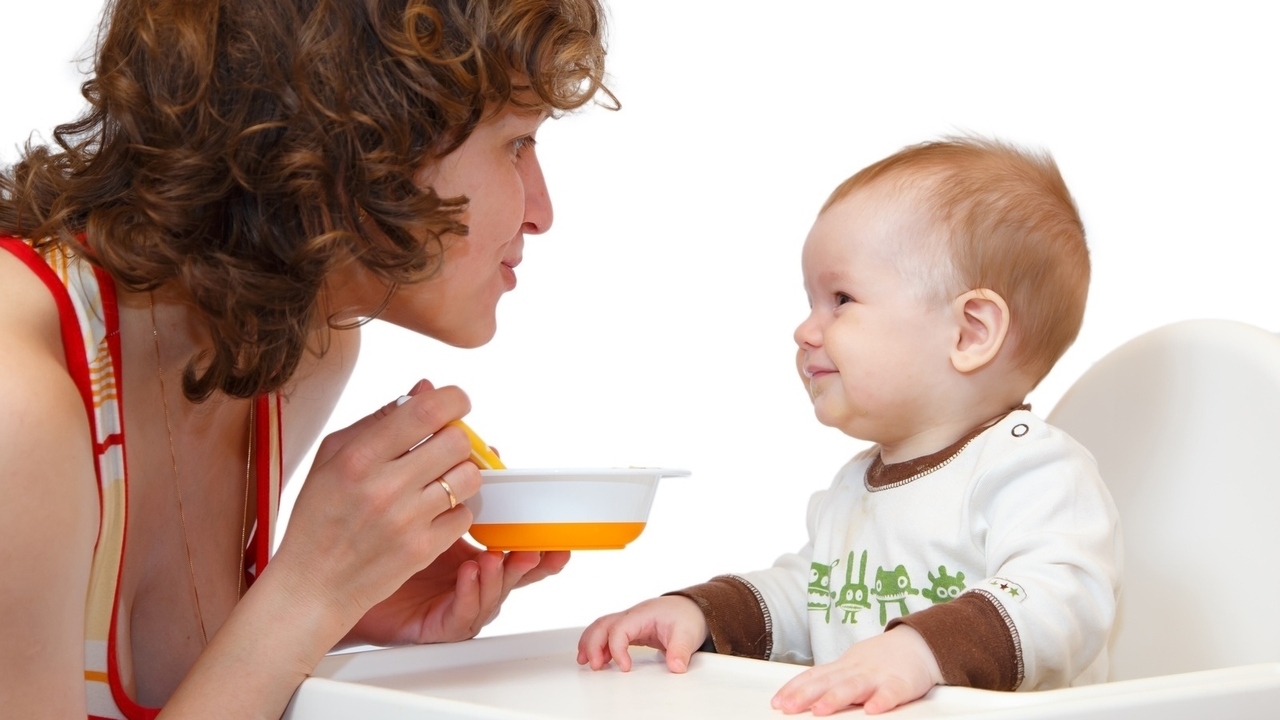 Vanoa2/Fotolia
Vanoa2/Fotolia
Breastfeeding. Child-led weaning. Self-feeding practices. There are so many topics and opinions when it comes to the health and nutrition of children. Frankly, it can get exhausting.
New parents may get a short boost of confidence when they “figure out” their breast or bottle-feeding routine. Not long after, the transition to a diet that includes table foods is a decision has to be made.
But when should this happen? And how?
As with any parenting advice, nothing holds up unless it looks at the individual child.
Pediatrician Dr. Senbagam Virudachalam from The Children’s Hospital of Philadelphia suggests that parents stick with the American Academy of Pediatrics guidelines. The AAP recommends that solid foods not be introduced before 4-to-6-months of age.
“Infants need to be able to sit up and hold their heads steady on their own in order to safely eat solids,” she advises.
Human diets and infant care practices vary tremendously in the world.
The European Society for Paediatric Gastroenterology Hepatology and Nutrition addresses issues for parents in industrialized countries. The ESPGHAN says that there is currently no scientific evidence behind the idea that “introducing complementary foods to breastfed infants between 4 and 6 months of age is a disadvantage relative to introduction after 6 months.” (4)
The Center for Disease Control and Prevention took a survey that indicated that, on average, only 19 percent of U.S. babies are exclusively breastfed at 6 months.
If your baby has head control and is less than 6 months of age, there are some advantages to starting a little earlier, including a lower risk for iron deficiency. Waiting until 6 months also has its benefits, such as a lower risk of gastrointestinal infections, according to Alice Callahan, PhD, author of the blog "The Science of Mom."
It is not advisable to introduce solids earlier than 4 months, as some studies indicate that babies who are provided with table foods before 4 months are more likely to be overweight or obese in childhood and adulthood. They may be vulnerable to other risks as well.(4)
Ultimately, waiting until your baby is truly ready is the best time to introduce solid foods. When you aren’t sure, pediatricians can help you to see if your baby’s gut needs more time with a single liquid or is ready for flavors beyond breast milk or formula.
When the time comes, research indicates that it is best to introduce children to a variety of foods and textures. A baby may need to try a food between 10 and 15 times before he or she will eat it.
On Healthchildren.org, a website founded by the AAP, one parent gave this advice: “I give my baby the stuff he doesn’t like first, when he’s most hungry. Don’t give him the fruits first – give him the veggie or meat first so he’ll eat it!” (5)
Don't stress out. Advice from doctors, fellow parents and your own intuition will lead you in the right direction.
Reviewed June 23, 2016
by Michele Blacksberg RN
Edited by Jody Smith
1) Breast-feeding: A commentary by the ESPGHAN Committee on Nutrition. PubMed. Retrieved 22 June 2016.
http://www.ncbi.nlm.nih.gov/pubmed/19502997
2) Infant Food and Feeding. American Academy of Pediatrics. Retrieved 22 June 2016.
https://www.aap.org/en-us/advocacy-and-policy/aap-health-initiatives/HALF-Implementation-Guide/Age-Specific-Content/pages/infant-food-and-feeding.aspx?nfstatus=401&nftoken=00000000-0000-0000-0000-000000000000&nfstatusdescription=ERROR:+No+local+token
3) Breastfeeding Report Card 2014. National Center For Chronic Disease Prevention and Health Promotion. Retrieved on 22 June 2016.
http://www.cdc.gov/breastfeeding/pdf/2014breastfeedingreportcard.pdf page 4
4) Callahan, Alice. Starting Solids: 4 Months, 6 Months Or Somewhere In Between? The Science of Mom: The Heart And The Science of Parenting. Retrieved 22 June 2016.
https://scienceofmom.com/2015/05/14/starting-solids-4-months-6-months-or-somewhere-in-between
5) Baby Food & Feeding. Healthy Children.org. Retrieved 22 June 2016.
https://www.healthychildren.org/English/healthy-living/growing-healthy/Pages/baby-food-and-feeding.aspx
6) Email interview with Dr. Senbagam Virudachalam from The Children’s Hospital of Philadelphia. June 22, 2016.






Add a CommentComments
There are no comments yet. Be the first one and get the conversation started!